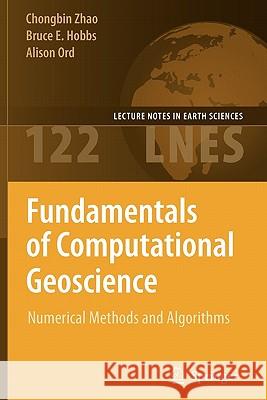Fundamentals of Computational Geoscience: Numerical Methods and Algorithms » książka
topmenu
Fundamentals of Computational Geoscience: Numerical Methods and Algorithms
ISBN-13: 9783642100543 / Angielski / Miękka / 2010 / 323 str.
This monograph provides state-of-the-art numerical methods, procedures and algorithms in the field of computational geoscience, based on the authors own work during the last decade.











